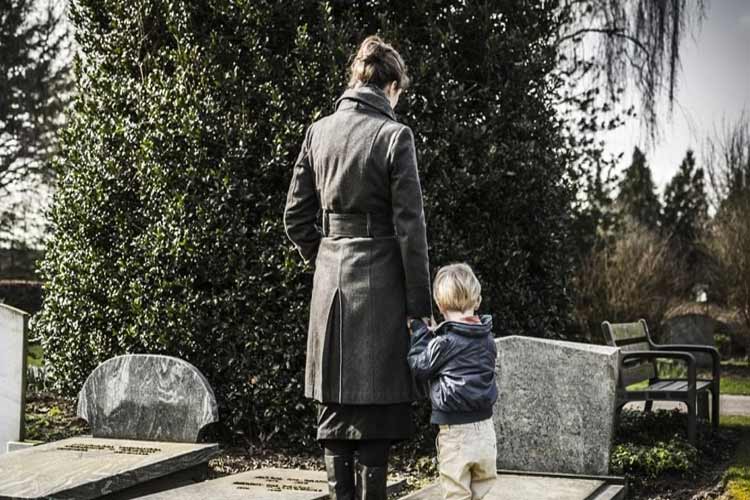Talking to children about death can be incredibly difficult. Especially when you are mourning yourself, ensuring that they completely understand what you are talking about and dealing with how they react can be worrying.
As a parent, no matter how much you wish you could, you can’t protect your child from the pain of loss, however, ensuring that you speak honestly can make them feel supported and help them deal with the emotions they are feeling.
Talking to Children about Death
There’s no doubt about it, talking to a child about someone close to them passing can be incredibly difficult. It’s normal to worry that you will frighten them, or say the wrong thing.
Be Honest
It’s important that children know what happened to the person that passed. Try explaining to them what happened in clear, simple language that suits their age and maturity. Sometimes, you may find that giving them information in small amounts at a time makes the situation much easier to understand, especially if they are very young. Start by explaining that someone has passed away, and then any other details needed can follow.
Use Plain Language
It is much clearer and simpler to say someone has died rather than using euphemisms. Try to avoid explanations such as the person has “gone to sleep” or “gone away”, as this can make your child worry unduly about going to sleep or when someone leaves the house that they won’t come back.
Encourage Them to Ask Questions
You should be prepared for your child to ask many questions and become inquisitive about the subject. Whilst this may be distressing, it is important to remember that it is all part of reassuring them and helping them to properly process the information they are facing.
Reassure Them
It’s very common for children to believe that the passing of a loved one is a result of something they have said or done. It’s vital that you explain simply why they are not to blame.
Sometimes, you may find that examples are helpful, like explaining that their loved one died because their heart stopped working. Make sure that they feel reassured that it wasn’t something someone said or did that caused this to happen.
Will Talking About Death Help a Child?
It’s common for adults to want to protect young people by not telling them what is going on. However, many children will notice that something is wrong and that the people around them are anxious and confused. They may prefer to know, even if the news is sad.
Talking to a child about death can make them feel supported and secure. Whilst they may have fears or questions, in the long run, talking about death will make them feel much more comfortable when talking about their own feelings. What’s more, if children see adults showing their feelings, they will grow up feeling more willing to open up about their own.
If you choose to not tell a child about a loved one’s death, you run the risk of them making up their own explanations of why that person is not around anymore. This may cause them to feel guilty as though they somehow caused it, or they may worry that they could an illness, should you not give them enough information.
When you are helping a bereaving child, the most important thing is that you take things one day at a time. If you feel as though you cannot cope, it’s important to remember that you don’t have to deal with this alone. Friends, family, and your child’s teachers will all be happy to help.
Read on below for our guide on how to talk to children about grief after a loved one passes, written with the expert advice and knowledge of The Probate Bureau, the leading provider of Probate Services Colchester.

